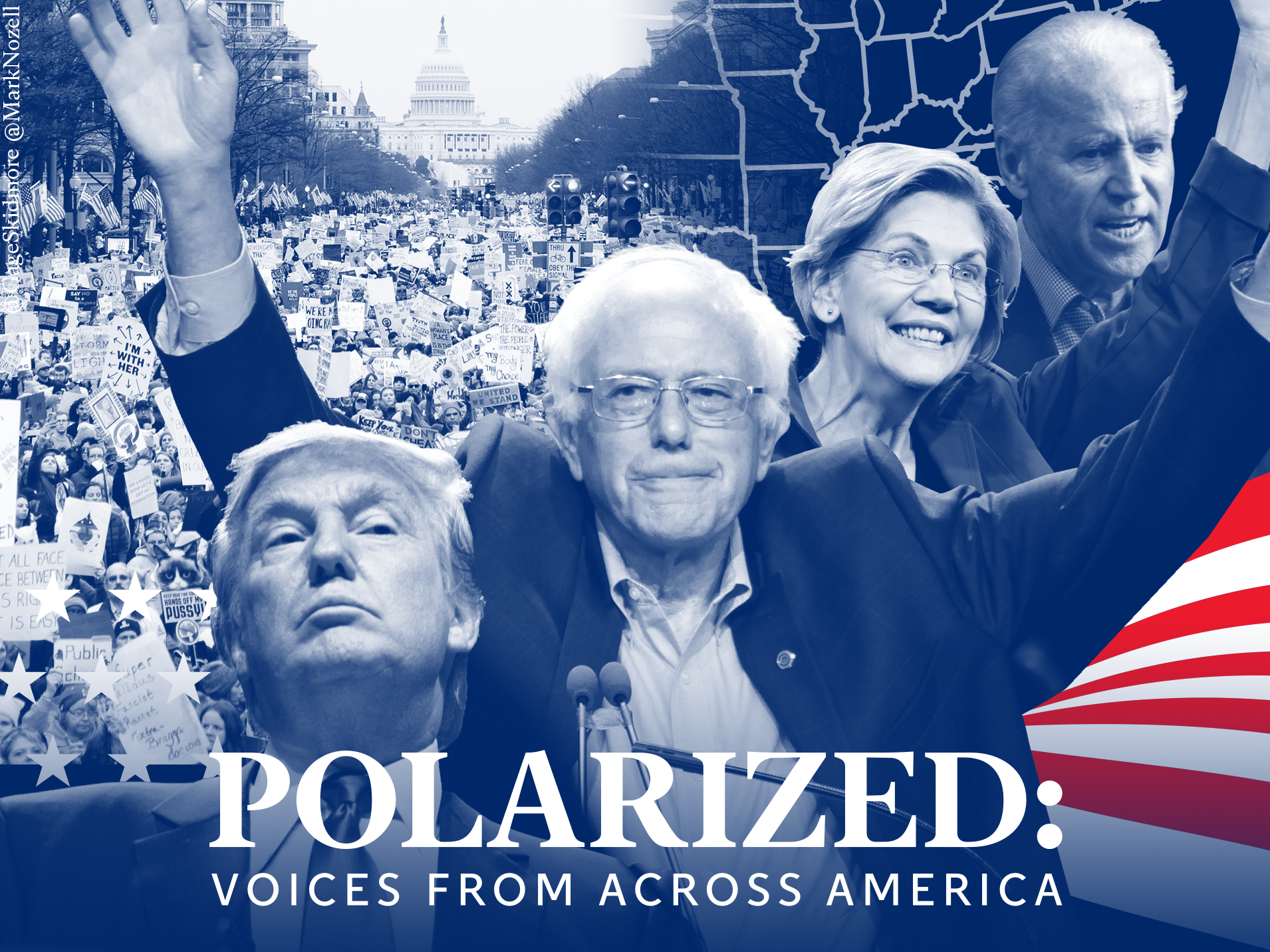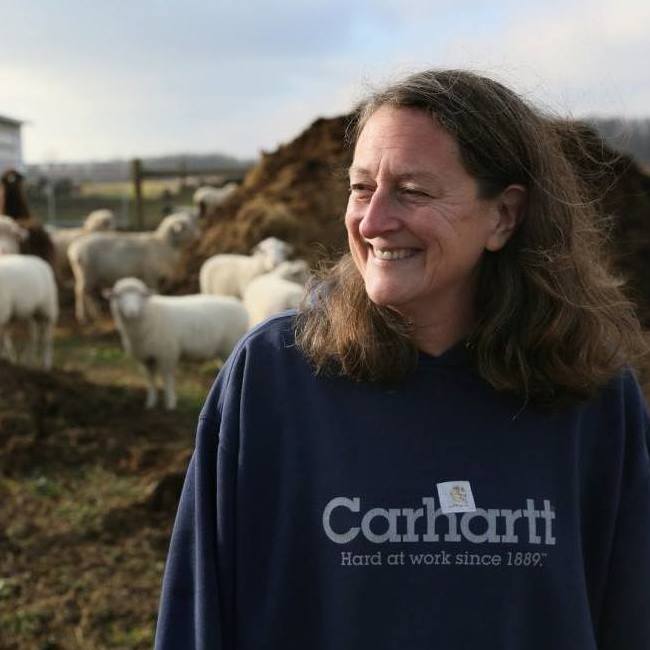Meet the Michigan voter working to turn her state blue for Pete Buttigieg
'Never in a million years would I have ever been involved in a political campaign if things hadn’t happened the way they did in 2016'

Your support helps us to tell the story
From reproductive rights to climate change to Big Tech, The Independent is on the ground when the story is developing. Whether it's investigating the financials of Elon Musk's pro-Trump PAC or producing our latest documentary, 'The A Word', which shines a light on the American women fighting for reproductive rights, we know how important it is to parse out the facts from the messaging.
At such a critical moment in US history, we need reporters on the ground. Your donation allows us to keep sending journalists to speak to both sides of the story.
The Independent is trusted by Americans across the entire political spectrum. And unlike many other quality news outlets, we choose not to lock Americans out of our reporting and analysis with paywalls. We believe quality journalism should be available to everyone, paid for by those who can afford it.
Your support makes all the difference.Dr Heather Ludlam never thought she’d be so involved in a political campaign before 2020.
The veterinarian and shepherd was focused on a mission she and her husband Mike Ludlam had taken on after his sister passed away from Huntington’s Disease: finding a cure.
The genetic disease is a deadly neurological disorder that deteriorates nerve cells in the brain and lacks any sort of treatment to stop or reverse its effects. But the Ludlams read a scientific news article that said researchers were exploring whether healthy brain fat in sheep could one day provide aid to patients.
After her sister-in-law passed, Ludlam says she saw an article in the American Sheep Industry newsletter “about sheep having the potential to help with Huntington’s disease.”
“I contacted the vet involved in the project one cold January day,” she recalls in an interview with The Independent.
Ludlam has now found herself raising sheep that will one day aid those researchers hoping to find a cure. Mainly, she says “it just involves keeping really good records” — Ludlam uses electronic identification in her documents and takes blood samples of each lamb when they’re born.
“That’s the only difference in our production practice, really,” she says.

For Ludlam, the idea of joining the fight to find a cure was simple: “I said, what can we do? We raise sheep. So, we can raise these sheep and their brain fat can help with the treatment of Huntington’s ... gene therapy is coming — one day it is.”
But the idea of getting involved in politics? Perhaps not as easy a decision for the 53-year-old, self-identified independent voter.
“Never in a million years would I have ever been involved in a political campaign if things hadn’t happened the way they did in 2016 — and if I hadn’t found a candidate who actually inspired me,” she says.
Ludlam has since thrown herself into the 2020 campaign trail, fully backing and even volunteering for South Bend, Indiana Mayor Pete Buttigieg.
She volunteered at the millennial mayor’s opening announcement, and says she has even been locally active in his campaign’s grassroots efforts throughout Michigan.
Ludlam describes a “crisis of belonging” in America — a phrase Buttigieg also uses to describe the current mood in America — saying she believes “technology has isolated people, and our political differences have isolated people, and I really feel like [Butttigieg] is a true unifier.”
Ludlam first became interested in Buttigieg when she visited South Bend in 2018 and attended a live airing of NPR’s show called Wait Wait…Don’t Tell Me! that featured the mayor.
“At first we were like, ‘Oh come on, what is this, we don’t get a real celebrity?’ But then Pete was brilliant, and funny, and articulate, just a good person — you could tell just from this 20-minute interview that we got to watch with him,” she says. “Then we started noticing things about South Bend, and after going back a few times we were like, ‘Wow, things really are getting nice around here,’ and my nephew was like, ‘I told you!’”
“By March I would say I was all in for Pete,” Ludlam says.

Ludlam says healthcare and expanding scientific research funding are among her top issues ahead of the 2020 election, as well as women’s reproductive rights and equality.
She adds: “As a woman I feel pretty strongly about reproductive rights, women’s health is a big issue for me … I have a transgender son, so the LGBT community is also very important to me."
Ludlam describes the long-term healthcare system as having let her family down while dealing with her sister-in-law’s illness — "my brother-in-law [was] going to have to divorce her to put her into poverty so that she could get aid, you know, for her long-term care," she explains —but she was excited when former President Barack Obama signed the 21st Century Cures Act just a month before he left office. The bill was a $6.3bn package that provided state funding and expanded precision medicine, mental health research and interoperability.
Former Vice President Joe Biden described the bill during its a signing as a “consequential piece of legislation” that would “harness the best minds, science and technology to tackle some of the biggest healthcare challenges today,” adding: “God willing, this bill will literally save lives.”
However, Ludlam notes that medical research funding was immediately slashed when Donald Trump proposed his budget that following year. Now, the very dollars that allow the researchers she is working with to raise sheep that could one day provide treatment for Huntington’s Disease is seemingly threatened by the current White House administration.
“It’s so important for projects like this, that might not be lucrative — nobody’s going to get rich off this treatment, you know? — the pharmaceutical companies aren’t looking that hard at it, so the government could really help out with this kind of thing,” she says. “There just isn’t nearly enough money to go around, so that’s an issue for us as well.”
“I never intended to be following it this closely, but I am, because 2016 was devastating, just devastating,” she adds, of the 2020 election.
Ludlam voted for former Secretary of State Hillary Clinton, but says “once they brought back up the email investigation, I knew it was over.”
Trump won Michigan in a shocking electoral upset after securing just 0.3 per cent more votes across the state than Clinton. But Ludlam, who has seen the impact of his trade wars on local farmers and industries, says she sees Michigan going blue again in 2020.
“Well, it was only 10,000 people,” she says, while laughing. “So I do see it going the other way. We just elected a Democratic governor, attorney general secretary of state, and I think that was in response to the current administration.”
Join our commenting forum
Join thought-provoking conversations, follow other Independent readers and see their replies
Comments